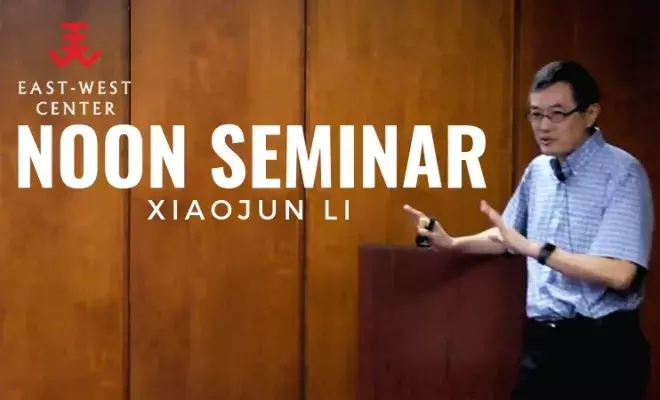Error message

Years of isolation have left North Korea economically reliant on China. Today, diplomatic efforts to contain North Korea's nuclear ambitions depend on China's ability and willingness to control trade between the two nations. After three decades of market reform, however, less than 20% of China’s trade with North Korea is now in the hands of state-owned enterprises (SOEs). The expanding role of private firms raises the question of whether the Chinese government’s willingness to exert leverage is affected by these firms’ political-economic interests. This presentation explores this issue using a unique data set that covers every firm-level transaction of imports and exports between China and North Korea from 2000-2004. The findings will have important policy implications for the international community.
Video of Xiaojun Li's presentation on 11/27/18 at East-West Center:
Xiaojun Li (PhD Stanford University) is an Assistant Professor of Political Science at the University of British Columbia and currently a POSCO Visiting Fellow at the East-West Center. His research focuses on the impact of domestic politics on foreign economic and security policies; the impact of global supply chains on trade and investment; and the political economy of trade liberalization in developing and post-communist countries.
Years of isolation have left North Korea economically reliant on China. Today, diplomatic efforts to contain North Korea's nuclear ambitions depend on China's ability and willingness to control trade between the two nations. After three decades of market reform, however, less than 20% of China’s trade with North Korea is now in the hands of state-owned enterprises (SOEs). The expanding role of private firms raises the question of whether the Chinese government’s willingness to exert leverage is affected by these firms’ political-economic interests. This presentation explores this issue using a unique data set that covers every firm-level transaction of imports and exports between China and North Korea from 2000-2004. The findings will have important policy implications for the international community.
Video of Xiaojun Li's presentation on 11/27/18 at East-West Center:
Xiaojun Li (PhD Stanford University) is an Assistant Professor of Political Science at the University of British Columbia and currently a POSCO Visiting Fellow at the East-West Center. His research focuses on the impact of domestic politics on foreign economic and security policies; the impact of global supply chains on trade and investment; and the political economy of trade liberalization in developing and post-communist countries.






